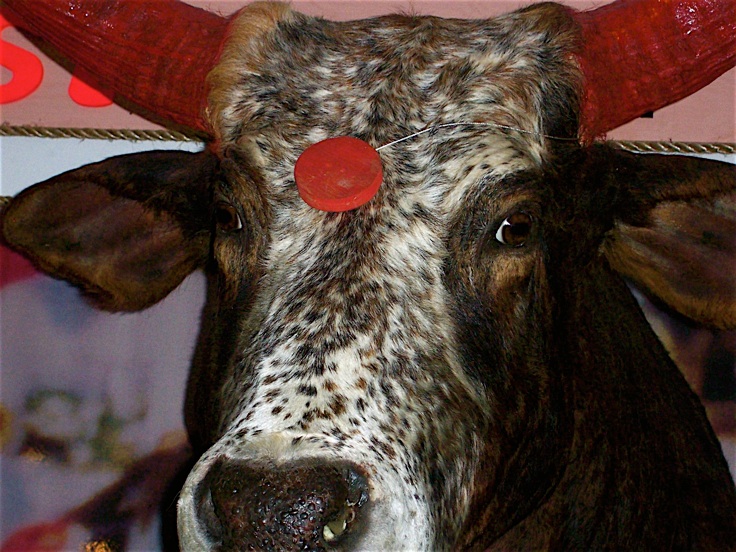The final event of the day once again pits the will of the contestants against the sheer force of a bull. “Guts and Glory” does not require many, if any, rodeo skills. As the name of the event implies, it takes guts to win, and the man who is victorious walks away with all the glory—and up to $500.00 in prize money (xlv). The winner is the man who can tear away a chip that has been strapped to the head of a bull. The event is given a three minute time limit. Regardless of who wins—a man or animal—the crowd celebrates every second of this last event. Few members of the audience remain in their seats.
Journalist Daniel Bergner, who spent more than a year at Angola interviewing currently incarcerated men, guards, and the warden, depicts the possibilities that emerge from the prison rodeo in Gods of the Rodeo. An exchange between Bergner and rodeo competitor Terry Hawkins illustrates the meaning of the rodeo to the men at Angola. In October 1996, Bergner stood in the crowd and watched Hawkins valiantly and wrestle the red chip from the head of the bull. Hawkins was no stranger to the cheers of the spectators. He had won “Guts and Glory” in the past, an accomplishment he told Bergner, was “the best in his life.” When Bergner questioned if that included events in his life before Angola, Hawkins said “it did” and when he asked Hawkins if he could imagine anything better in the future, he simply said “no” (xlvi). In Terry Hawkins’ world, the prison rodeo is the site of his life’s greatest achievement.
I pay close attention to the announcer during my visit, I do not want to miss Terry Hawkins’ name projected over the loud speaker. As his name is announced Terry raises his arm and waves to the crowd; his red baseball cap makes it easy to follow during the event. Ironically, men at Angola historically wore red hats--known at the prison as “The Red Hats”--making them visible while working in tall fields throughout the prison. Guards on horseback could easily see and, if necessary, shoot at a man while working or fleeing the field. Terry is aggressive in his pursuit of the bull, more so than two-thirds of the twenty men in the ring who are hesitant to make a move toward the bull and instead appear to be content watching the action from a distance. Terry and three other men instinctively agree simultaneously lunge toward the muscular beast. Moments later, a man emerges from the scuffle with the red chip triumphantly raised above his head. The stadium exhales and erupts into cheers. Like a pitcher who had just thrown a no-hitter, the winner of the event is surrounded by fellow competitors and whisked up onto their shoulders for a victory lap around the rodeo ring. Terry Hawkins joins in the applause. He has not won this round, but he and the other men appear to all take a moment to bask in the “glory” of victory. Marking the end of another successful rodeo, the spontaneous celebration seamlessly transitions into a mass exodus. Although they have not stopped cheering, the spectators file out of the arena. Correctional officers signal that it is time for the men to return to the prison. The reality of life at Angola can only be suspended for so long.


